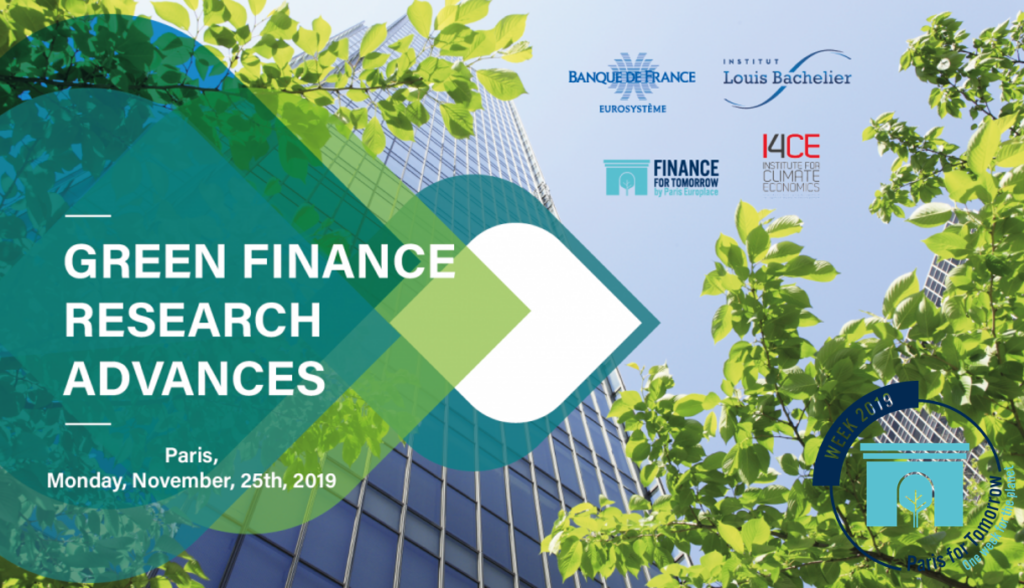Conférence I Green Finance Research Advances
Conferences - By : Michel CARDONAThe conference was held in English.

The conference is the 4th edition of a yearly event co-organized by Institut Louis Bachelier and Banque de France, with the participation of Finance For Tomorrow and the Institute for Climate Economics –I4CE.
The objective of the conference is to bring together academics, finance practitioners and regulators, to discuss together research issues related to the integration of climate risks (more generally environmental issues) into macro-economic modelling/forecasting and into the risk assessment of the financial sector.
The 25 November 2019 will touch upon a number of key research areas as identified, for instance, in the annex 2 of the NGFS technical document entitled ‘Macroeconomic and financial stability/Implications of climate change, July 2019’ that are related to data gaps, macro-modelling forecasting and uncertainties, macro stress-testing and the mispricing of assets.
More information and programme
Paris for Tomorrow Week : Organized by Finance for Tomorrow and placed under the High Patronage of Paris City Hall, the “Paris for Tomorrow Week” was taking place from November 25 to 29, 2019. More than just a “Climate Week”, the week-long series of events explores issues related to both financing and achieving the climate objectives and the Sustainable Development Goals (SDGs). This whole week was gather in Paris the financial and business community as well as civil society, local and public authorities.
